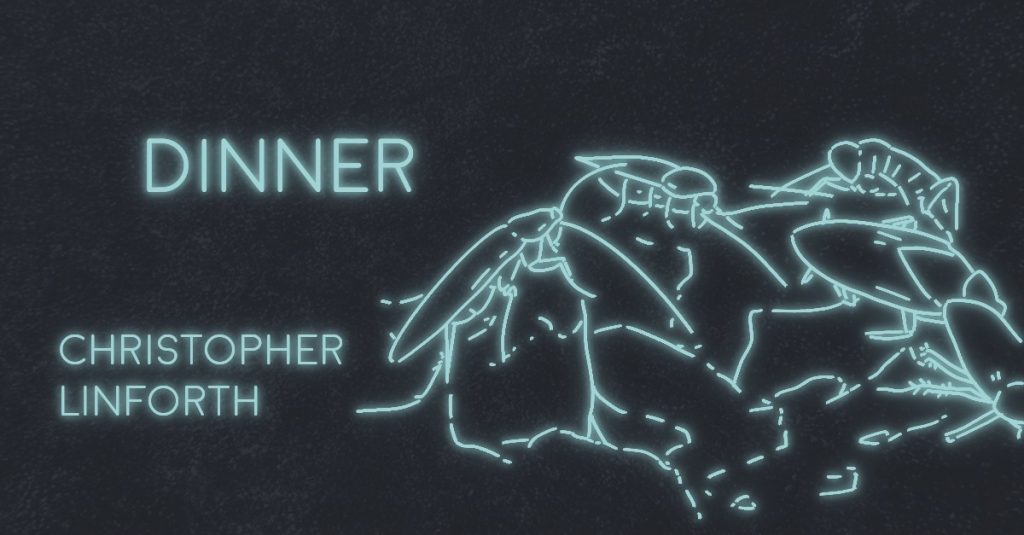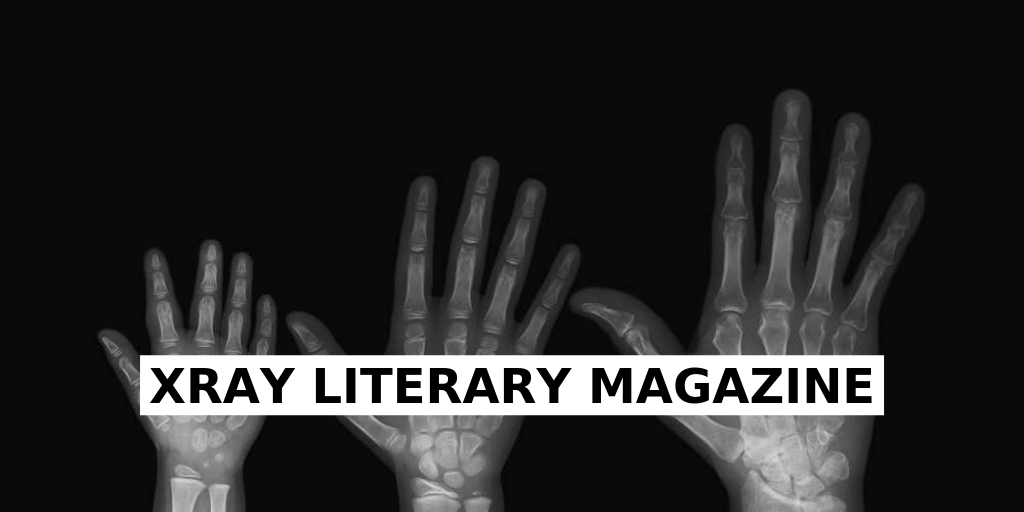
DINNER by Christopher Linforth
At that time in our lives, we rose at dusk for the feeding shift. Still in our underwear, we crept downstairs and into the kitchen. Shiny black bugs skittered across the tile floor. The lazy cockroaches remained on the counter and in the tinfoil containers stinking of rotten noodles; a few silvery beetles disappeared into the seal of the refrigerator. In the living room our mother railed at the television, at the caregiver exiting the house. We heard calls for dinner, thuds on the floor, shouts for our dead father. We rubbed crust from our eyes, then surveyed the leftovers on the floor: the cartons of moldy coleslaw, the potatoes sitting in an old washing machine drum. Our mother wanted something to ease the eternal pain in her stomach. She cried about it every evening, said it was caused by our father’s death. His coronary was our fault, she claimed. Even now, we could hear her saying that he had despised us, that raising twins had broken his spirit. He had spiraled into his own world; he desired food, every bit of it in the house, and she now carried on his legacy. We pawed through the cabinets, then the refrigerator. We slapped a slab of raw chicken on a plate, sprinkled blue crystal salts onto the pinkish skin. We slipped into the living room, saw our mother’s bulbous silhouette. The television flashed commercials: fat burgers and buttered shrimp. She jabbed at the remote control. The volume ramped up. The bass rumbled through her chairside buckets of seed packets, the fruit crates stuffed with newspapers and women’s magazines. Dolls toppled off the bookshelves. Her possessions were part of her, she enjoyed saying, but we were not. She yelled for us to hurry. We looked at the slimy chicken breast again, second-guessed the blue crystals. Our mother’s favorite gameshow came on the television and she roared for her food. We’d had enough. We sneaked closer to her. Ammonia stung our noses. Beside the foot of her recliner sat a line of soda bottles filled with urine. A string of Christmas lights lay around the bottles, around the skirt of her chair. We cooed: Mamma, Mamma, Mamma. We offered her the plate and she snatched it from us. Leave, she said. I want to enjoy this. She used to say she was a proud mother. She used to look to see what she was eating.

